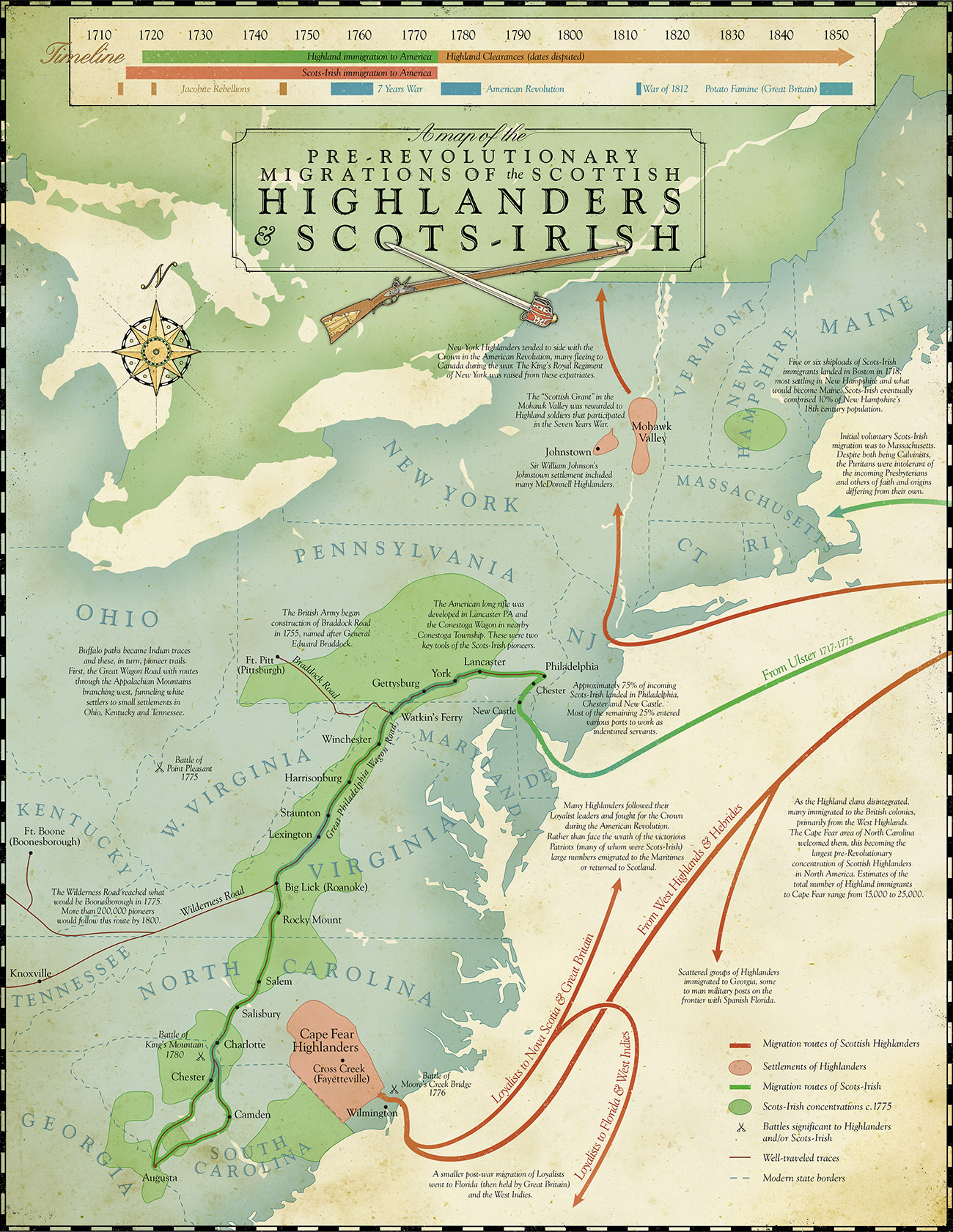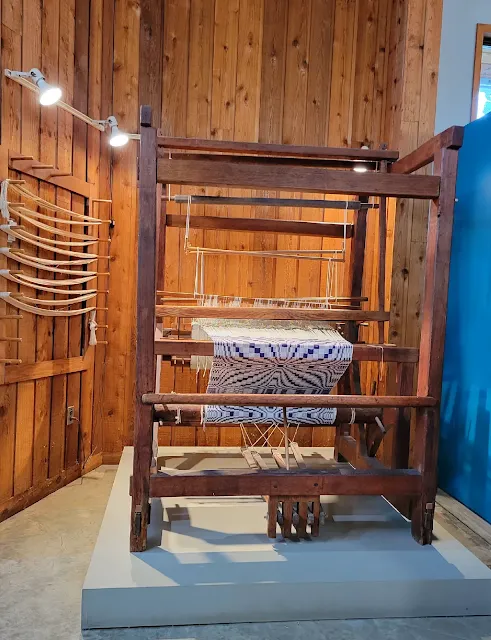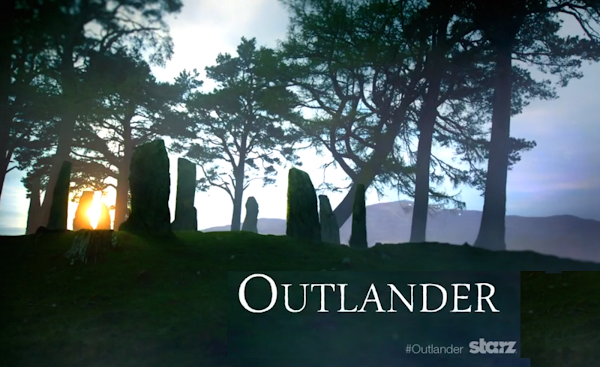An OUTLANDER-related adventure (Part 3)

This is Part 3 of my account of my recent Road Scholar trip to Montreat, North Carolina. You can see Part 1 here, Part 2 here, and part 4 here.
Part 3: Wednesday, June 1
Today's classes were focused mainly on the culture of the Southern Appalachians, particularly in the mountains of western North Carolina, where many of the Scots-Irish immigrants settled. You'll recall from DRUMS OF AUTUMN that many Highland Scots arrived in North Carolina the way Jamie and Claire did, traveling from Wilmington up the Cape Fear River to Cross Creek (now Fayetteville). But many, many Scots-Irish immigrants traveled along the Great Wagon Road, which stretched from Philadelphia all the way south to the Carolinas. Click on the map for a bigger view.

Our instructor said that 85% of the settlers in the Southern Appalachians were Scots-Irish, but the Great Wagon Road also brought a number of German settlers to the area, mainly Moravians and Lutherans. I was fascinated to learn about this, because it answers a question I have been wondering about for some time. How did the McGillivrays and other German settlers end up so far south in North Carolina, far from the main German-speaking areas in Pennsylvania? We can speculate that Ute and Robin McGillivray might have met at some point along this journey.
As we've seen in the OUTLANDER books, the fact that travel through the mountains was difficult meant that the people who lived there were isolated from the outside world much of the time, and so they developed a unique culture. In our class this morning, we watched a very interesting documentary, called "Appalachian Journey", from 1991.
The filmmaker, Alan Lomax, traveled to the Appalachians in the 1980s to collect stories, music, folklore, and so on, from Asheville, Boone, and the surrounding area -- not far from where Fraser's Ridge is supposed to be located. He interviewed a number of old-timers in the area. Their accents can be hard to understand sometimes, but I really enjoyed hearing their stories. The video is about an hour long, and the video quality is not that good, but I thought it was worth watching.
I particularly enjoyed the music, and the "precision clogging" (around 47 minutes into the video), similar to tap-dancing. One feature of Appalachian music is improvisation, what our instructor called "freestyle" singing, where they never sing a song the same way twice.
We had a bit of a break after lunch, so I decided to go for a walk around Lake Susan, the little lake adjoining the hotel. It was a beautiful day and I enjoyed being outside in the fresh air, after spending so much time indoors.


You can probably tell from this picture that I was feeling really happy, four days into the trip with everything going so well!
In the afternoon, we visited the Folk Art Center on the Blue Ridge Parkway. I had been there before with my mother a few years ago, and it's always interesting to see the crafts on display. I particularly liked the wooden loom, because it looks like something they would have used in the 18th century.


I bought a book on the folklore of the North Carolina mountains, including the story of the Brown Mountain Lights, which Diana Gabaldon has said were the inspiration for Otter-Tooth's ghost in DRUMS OF AUTUMN.

After dinner, we had an evening session with Anne Lough, who taught us how to play the mountain dulcimer, a stringed instrument they play in the mountains. Our practice dulcimers were made of cardboard. I wasn't very good at it, but it was fun.
Please check back tomorrow for more!








My grandpa used a lot of expressions and pronunciations that mountain folk use. I've yet to visit the towns he and his family lived in. I really should do that some day. My grandpa was at Fort Bragg when he was in the army and met my grandma while there. So they settled in Cumberland (more of a spot than a town, outside of Fayetteville), after moving back and forth a couple times.
Regarding the German settlers, I do genealogy, and my husband's family was part of that settlement. German Reformed followers came south on the Great Wagon Road too, and many settled in Guilford and Alamance Counties, NC. The group in Salem were Moravians, and while there was not discord between the two groups, there wasn't much mingling, either. Many of the older families clung to German as a first language up into the mid 1800s, and my husband's ancestor actually moved to Rockingham Co. NC so his children could learn English.
My own family is English, Scots, Welsh, and French, with a line of Hugenots - French Protestants who came to the Americas to practice religious freedom, so you'll find names like Follett, Morisset, Chastain, Robinette, Faucette and Marlette in the Piedmont areas of NC and VA. NC is truly a melting pot - of the Native Americans, African Americans, escaped indentured Europeans, plus the English, Scots, Irish, German and French